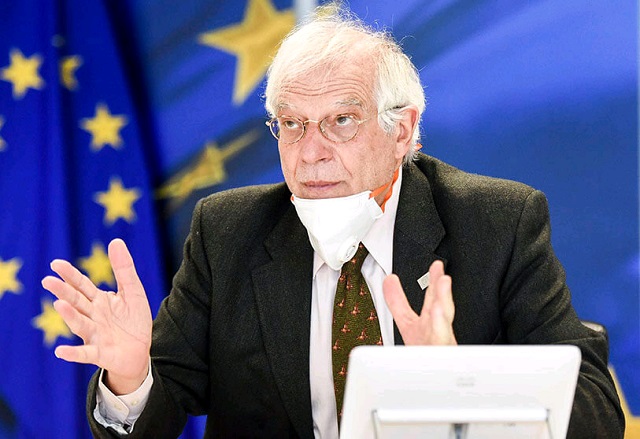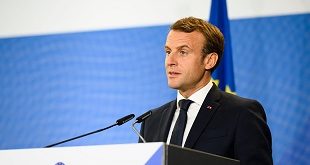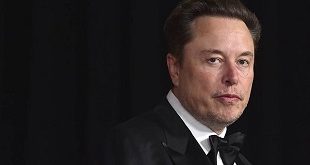
Brussels, Belgium | Xinhua | The European Union (EU) should be ready to face the cost of its sanctions against Russia as Moscow is now widely expected to retaliate, EU’s High Representative for Foreign Affairs and Security Policy Josep Borrell warned on Monday.
“Sanctions will backlash, sanctions have a cost … We have to be ready to pay this price now, because if not, we will have to pay a much bigger price in the future,” Borrell said, adding that it was important to be realistic in this situation.
“Energy will not be out of this conflict, like it or not,” Borrell said at a press conference following a video conference of EU defense ministers.
As Europe is highly dependent on Russian gas and oil, the EU will have to accelerate its green transition towards renewables, he said.
On Sunday, the EU member states’ foreign ministers agreed on a 500-million-euro (560.7 million U.S. dollars) budget for military assistance to be sent to Ukraine — a move the bloc described as a “watershed moment” in its history. Before that, two sets of sanctions aiming at isolating and weakening Russia had been agreed by the ministers.
Borrell presided over a meeting of the EU defense ministers, which was called to coordinate the member states’ efforts to provide military assistance to Ukraine.
“We are creating a clearing house (mediator) to keep track of the Ukrainian requests in one side, and their needs, and our offers, member states offers, in order to be sure of the maximum effectiveness and coordination of our support,” explained Borrell.
This unit will be working in coordination with the North Atlantic Treaty Organization (NATO), he added.
Military help to be sent by the EU to Ukraine includes weapons, munitions and materials that will “allow the Ukrainians to defend themselves,” according to Borrell.
As the EU decided to supply military assistance to Ukraine, it is moving from a peace union to a military union, said Borrell.
“Until now, it was considered that the European Union, which is a peace union, not a military union, was not allowed to supply arms to a third country. That’s what we are doing now. This is another taboo that falls,” he told the press conference, adding that this was a turning point in the history of EU integration.
*****
Xinhua
 The Independent Uganda: You get the Truth we Pay the Price
The Independent Uganda: You get the Truth we Pay the Price


